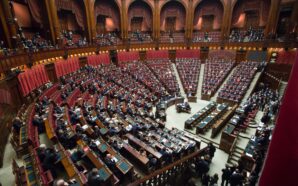

Credit: Unsplash
Rishi Sunak Explores Policies to Safeguard the Next Generation from Tobacco Harm
British Prime Minister Rishi Sunak is contemplating groundbreaking anti-smoking measures aimed at safeguarding the health of the next generation. Reports indicate that Sunak is exploring strategies akin to those adopted by New Zealand last year, which include incrementally raising the legal smoking age, ultimately prohibiting tobacco sales to individuals born on or after January 1, 2009.
The proposals align with the government’s overarching ambition to achieve a smoke-free status in the United Kingdom by 2030. To realize this goal, various initiatives have already been initiated, such as the distribution of free vape kits, a voucher program incentivizing pregnant women to quit smoking, and consultations on mandatory cigarette pack inserts.
A government spokesperson stated, “We want to encourage more people to quit and meet our ambition to be smoke-free by 2030, which is why we have already taken steps to reduce smoking rates.” However, the spokesperson refrained from providing additional comments regarding the recent reports.
These potential measures are part of a new consumer-focused agenda from Sunak’s team in the lead-up to the anticipated election next year. It reflects the government’s commitment to address public health concerns, particularly in relation to smoking cessation and youth protection.
https://x.com/MirrorNow/status/1705465769843458144?s=20
New Zealand’s approach to reducing smoking rates involved increasing the legal smoking age and reducing the nicotine content of tobacco products and limiting their sale to specialty tobacco stores, rather than convenience stores and supermarkets.
The consideration of such policies has generated discussions and consultations, with the Labour party expressing interest in phasing out cigarette sales over time for younger generations, similar to New Zealand’s approach.
In addition to anti-smoking measures, Sunak’s administration has been exploring various policy changes, including a potential fine for missed medical appointments and reforms to the A-level education system.
Critics argue that these shifts reflect the government’s pursuit of clear policy distinctions in areas like welfare and law enforcement, potentially setting the stage for political debates in the upcoming election.
Biden Family Once Again Making Headlines
-
According to the latest annual report from the Tokyo metropolitan government, Tokyo finds itself at the bottom of Japan’s...
-
A revealing look at the tensions, beliefs, and family dynamics within the British royal family In his latest book,...
-
A single-engine aircraft en route from the Czech Republic to Croatia crashes in western Austria, prompting an investigation into...
-
Historic Bust: Massive Counterfeit Coin Operation Exposed, Unveiling Unprecedented Scale of Fake Toonies in Canada. In a groundbreaking development,...
-
Global leaders from BRICS urge restraint, humanitarian truce, and diplomatic solutions to quell the Israel-Hamas tensions. In a landmark...
-
Secretary of State Antony Blinken calls for de-escalation as fighting displaces millions and raises concerns for upcoming Congo elections....
-
The government is taking action to stop the spread of the bloodsucking pests. The South Korean government has launched...
-
Landmark ruling highlights ongoing tax challenges for short-term rental platforms in Italy In a significant development, an Italian judge...
-
Deportation Deadline Sparks Humanitarian Worries in Pakistan Pakistan’s government announced on Monday that almost 200,000 Afghan nationals have voluntarily...
-
Lessons Learned Shape Taiwan’s Preparedness in a Changing World Taiwan’s military has embarked on a comprehensive initiative to strengthen...
-
White House Reveals Disturbing Executions and Threats in Conflict The White House has disclosed deeply concerning information regarding the...
-
Military Exercises Coincide with Treaty Developments Amid Global Concerns Russia recently executed a large-scale military exercise to rehearse its...




















